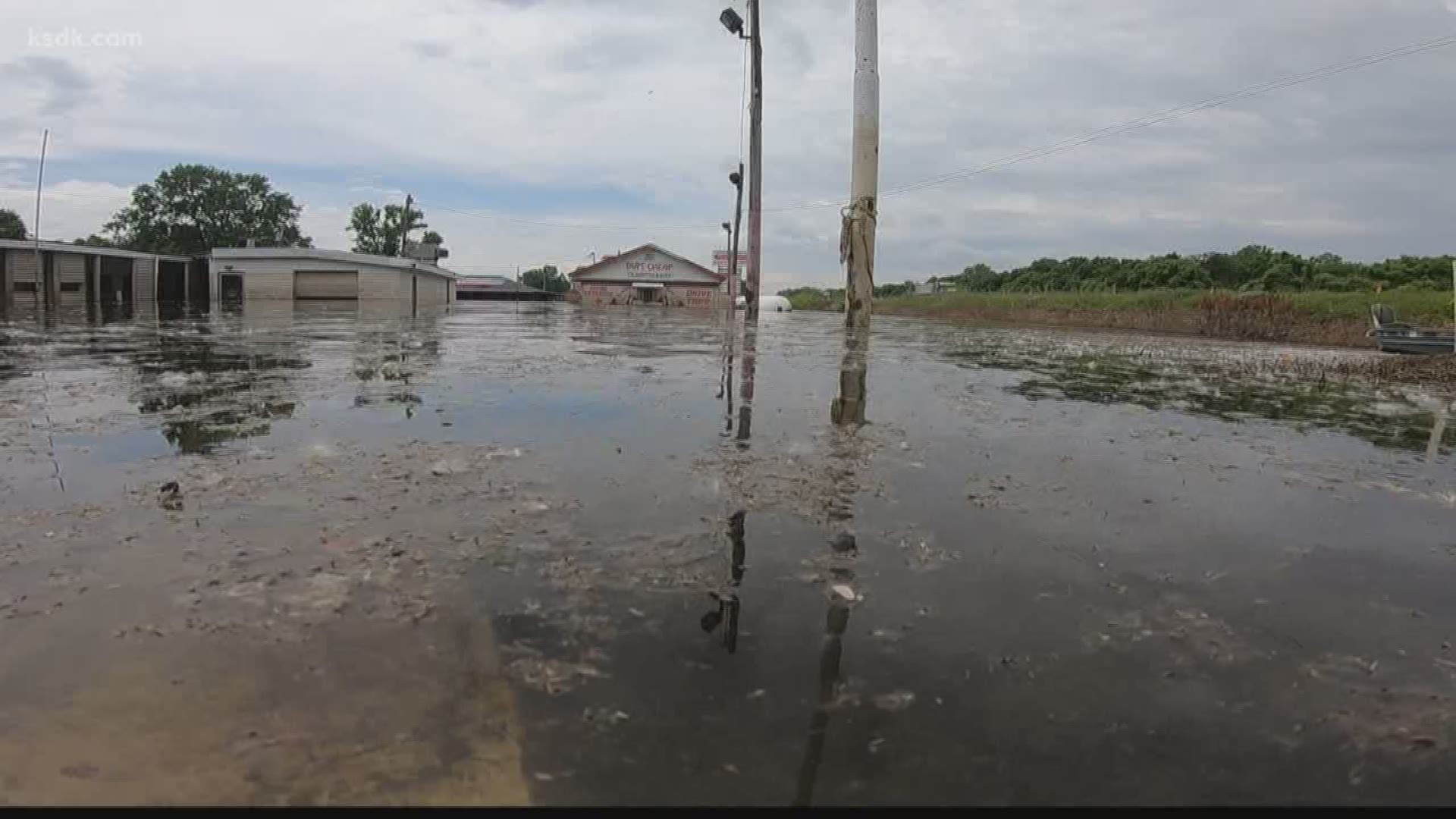ST. LOUIS — Temperatures are forecast to soar into the 90s this weekend. Adding humidity into the mix and the heat index could reach triple digits.
It may be mighty tempting to take a quick dip in local rivers and lakes, but after months of flooding, that might not be a good idea.
Whether you are squeamish about river water or not, there are some things that will make you think twice about a refreshing dip in it.
One, regardless of how long an area has been flooded for it's still possible for there to be electrical hazards like batteries left out and exposed wires.
Two, there has been extensive flooding in many areas this year. Think of it like hosing something off, anything in the path of the water gets swept into it. This means fuel, pesticides, industrial compounds and household cleaners could all be in the water. Contact with chemicals can cause rashes or burns. Ingesting them can cause stomach issues and headaches.
Three, bacteria, it's one of the gross realities of flooding. Often times raw sewage is carried into the water. Even if it's not a problem in your area, flood waters typically test high in E. Coli, Salmonella and the bacterial agent that leads to Tetanus.
Finally, flooding displaces so much water that it also displaces a multitude of other things. A river, creek or stream that you may be used to could have new obstacles in it. Everything from logs to park benches and loose patio furniture could be lurking below. It's not just objects you have to worry about, animals also have to get out of the way of floodwaters. Snakes, rats, insects, you name it, have had to move and may now be in areas where you least expect them.
Until health officials can test the waterways in your area, the best option is the local pool.

